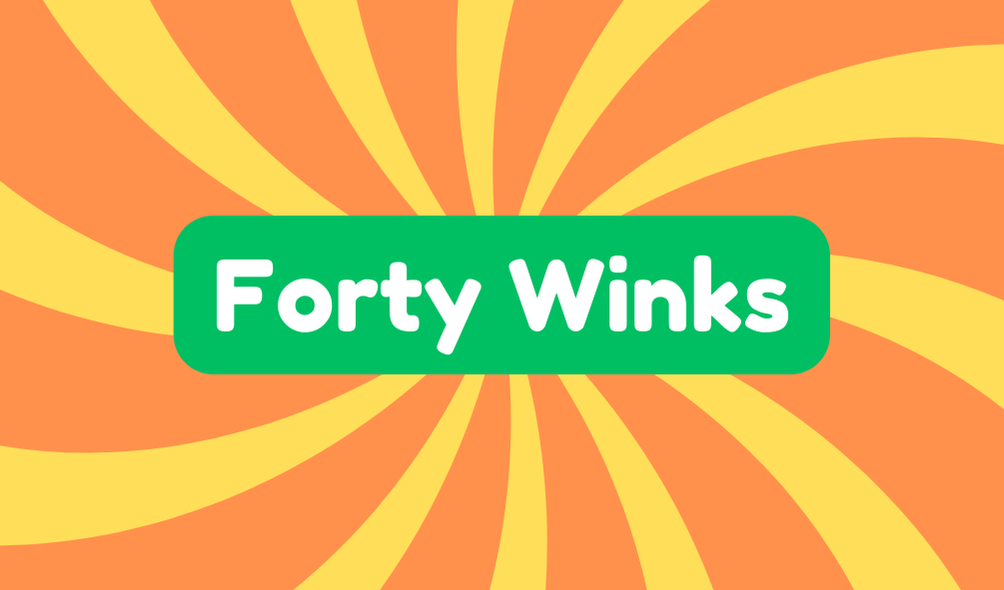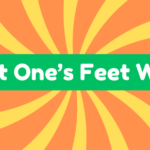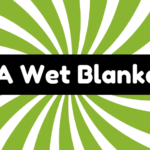The phrase "forty winks" signifies a short nap or brief sleep, often seen as a restorative break in our hectic lives. Its origin dates back to 1821, credited to Dr. William Kitchiner, with "winks" suggesting a quick closure of the eyes. Cultural interpretations vary, but the core idea remains relevant; people still rely on quick rests to boost productivity. For example, students may catch forty winks before exams. However, frequent napping could point to deeper sleep issues. Understanding these nuances encourages a balanced perspective on rest, inviting further exploration of its importance in our everyday lives.
Synonyms
When referring to a brief period of sleep, several synonyms can effectively convey the same concept as "forty winks." Terms such as "nap," "snooze," and "catnap" capture the essence of a short, light sleep typically taken during the day. While one might consider these nap alternatives beneficial, it's important to analyze their impact on productivity and well-being.
- Nap: A restorative pause, invigorating both mind and body.
- Snooze: A quick escape from reality, often taken on soft couches or during meetings.
- Catnap: A fleeting moment of relaxation, temporarily warding off fatigue.
Engaging in a midday slumber may seem enticing, yet it's vital to be aware of potential disruptions to nighttime rest patterns and overall sleep quality.
Example of Sentences
The phrase "forty winks" is commonly used in everyday language to describe a quick nap or brief sleep, often taken during the day. Engaging in such a brief rest can yield notable sleep benefits, revitalizing one's energy and enhancing focus. However, cultural variations may influence how this practice is perceived and valued across different societies. Consider these illustrative scenarios:
- A student sneaking in forty winks before an important exam.
- An office worker resetting their mind with a quick nap at lunch.
- A traveler rejuvenating during layovers, maximizing productivity.
While the benefits of short rest periods are clear, vigilance is necessary. Over-reliance on forty winks might indicate deeper sleep issues, highlighting the need for a balanced approach to daily rest.
Origin
Originating in Britain, the phrase "forty winks" reflects a cultural understanding of brief periods of sleep. The term signifies moments of sleep that are both readily acknowledged and humorously trivialized, often hinting at societal attitudes toward rest. Here's a concise overview:
| Historical Context | Cultural Interpretations | Modern Usage |
|---|---|---|
| Earliest documentation in 1821 by Dr. William Kitchiner | Varies across cultures, some see it as a light-hearted expression | Commonly used in everyday language, denoting short naps |
| "Winks" implies brief eye closure, tying to sleep | Interpretation linked to productivity concerns in contemporary society | Often referenced in literature and everyday discussions |
| "Forty" chosen for its connotation of abundance | Reflects historical significance in various texts | Indicates a balance between humor and the necessity for rest |
Investigating this phrase reveals layers of meaning that merit careful consideration.
Collocations
Collocations related to the phrase "forty winks" often enhance its meaning and usage in context. These pairings clarify how we perceive brief slumbers and their importance in our daily lives. Consider the following vivid examples:
- Catching winks during a busy workday can considerably improve productivity.
- Prioritizing daytime naps can recharge one's mental and physical energy.
- Taking a moment for a quick forty winks may combat mid-afternoon fatigue.
Understanding these collocations allows us to appreciate the value of short rests. Yet, while the cultural inclination towards naps is evident, it raises questions about our modern lifestyles. Are we truly embracing restorative practices, or merely skimming over the necessity for genuine rest? It's vital to critically evaluate the balance between hectic schedules and self-care.
How to Use in Everyday Language
Although it may seem whimsical, incorporating the phrase "forty winks" into everyday language can effectively convey the necessity of short periods of rest in a busy schedule. Recognizing the importance of sleep habits and napping benefits can foster healthier lifestyles.
| Context | Usage Example |
|---|---|
| Workplace | "I need to catch forty winks before the meeting." |
| Daily Routine | "Just taking a few forty winks can enhance my productivity." |
| Health Discussions | "Research shows the napping benefits of catching forty winks." |
| Personal Life | "Sometimes, a quick forty winks is all I need after lunch." |
While acknowledging the light-hearted nature of the term, it's essential to appreciate its practical implications for our wellness and productivity in a fast-paced world.
Why Is It Still Relevant Today?
The phrase "forty winks" retains its relevance in contemporary society, as the modern pace of life often demands quick recuperation from fatigue. With increasing demands from work, social media, and personal commitments, the necessity for short naps is evident. Pop culture references frequently highlight this phenomenon, showcasing characters sneaking in brief rest periods. Incorporating forty winks into a daily routine offers notable benefits, such as improved concentration and energy levels. However, the irony remains; while society champions the power nap, it often undervalues sleep's overall importance, suggesting that quick fixes cannot replace adequate rest. Consequently, the idiom serves as a reminder of our struggle for balance amidst an ever-busier existence, urging a critical examination of how we manage time and energy.







